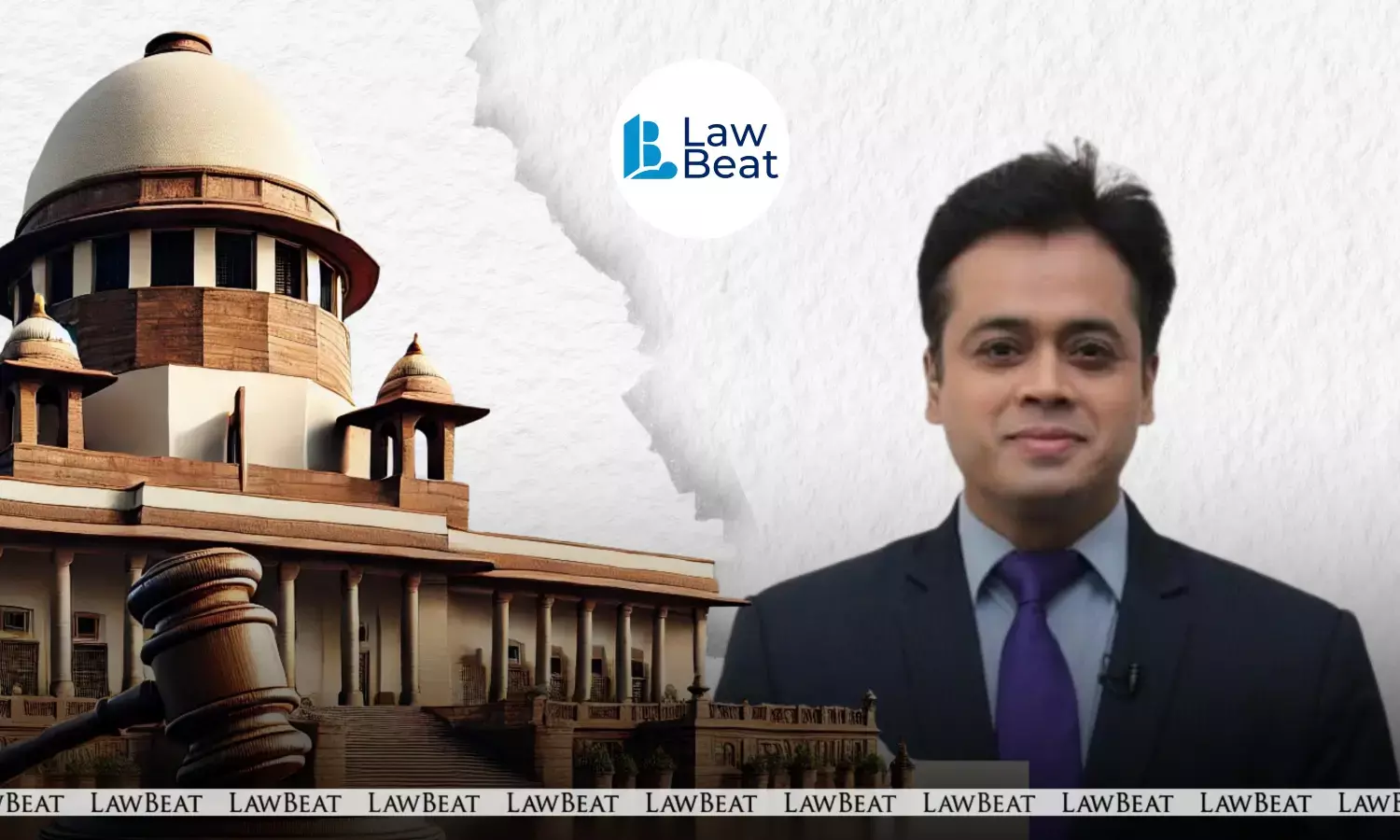Journalist Moves SC Against S.152 BNS; Seeks Quashing of FIR on Tribal Land Report

A Senior journalist, Abhisar Sharma has approached the Supreme Court under Article 32, challenging the constitutionality of Section 152 of the Bharatiya Nyaya Sanhita (BNS), 2023, the successor to the colonial-era sedition law under Section 124-A of the IPC.
The Bench of Justice MM Sundresh and Justice NK Singh will hear the plea on August 28.
The journalist has also sought the quashing of FIR lodged by the Guwahati Crime Branch under Sections 152, 196 and 197 of BNS, 2023, contending that the criminal prosecution is a blatant attempt to muzzle dissent and stifle journalistic freedom.
The petitioner is an award-winning journalist, a recipient of two Ramnath Goenka Awards, the Red Ink Award, and the Hindi Sahitya Award. He has previously worked with leading media organizations including India Today, Zee News, BBC World Service, NDTV, Aaj Tak, and ABP News. His YouTube platform has over 90 lakh subscribers and more than 301 crore views, making him one of the most prominent independent journalists in the country.
The FIR was registered following a complaint against a YouTube video in which the journalist questioned the allotment of 3,000 bighas of tribal land to a private entity. The video highlighted concerns over tribal rights, environmental impact, and democratic accountability, drawing upon recent proceedings before the Guwahati High Court.
The complaint accused him of ridiculing the government, mocking the political use of “Ram Rajya,” promoting enmity between groups, and making statements prejudicial to national integration.
The petition stresses that all statements made were fact-based, supported by original clips of speeches by the Chief Minister of Assam, and directed at government policies; not religion or national unity.
1. On the charge of denigrating the government, the petition argues: criticism of elected representatives is a constitutionally protected exercise of free expression and did not call for violence or disorder.
2. On the “Ram Rajya” remark, it clarifies that the reference was metaphorical and political, highlighting gaps between proclaimed ideals and governance realities.
3. On allegations of promoting enmity, the petition points out that the video actually condemned communal rhetoric, urging harmony rather than division.
4. On national integration, it stresses that criticism of state governance cannot be equated with anti-national activity.
The core of the writ petition challenges Section 152 BNS, calling it a “reincarnation of sedition,” suffering from the same constitutional vices of vagueness and overbreadth as Section 124-A IPC.
The journalist argues that the provision violates Articles 14, 19(1)(a), and 21 of the Constitution and directly conflicts with the Supreme Court’s 2022 interim order in WP (C) No. 682 of 2021, which had directed governments not to register or pursue cases under the sedition law until the matter was finally decided.
The petition filed through AoR Sumeer Sodhi underscores that the case is not an isolated instance, but part of a wider pattern of criminal laws being weaponized against journalists. Several reporters have been forced to approach courts against similar FIRs filed for their reportage or critical commentary on government policies.
He argued that the present FIR discloses no offence and is a clear misuse of criminal law to target journalistic expression, adding that invoking a law punishable with life imprisonment for a critical news video is a “gross constitutional affront.”
The petition is expected to be tagged with pending challenges to Section 124-A IPC, where the Court is already examining the future of sedition laws in India.
In a related news, the Apex Court had recently granted interim protection from coercive action to The Wire’s Founding Editor Siddharth Varadarajan, along with other members of the petitioner-Foundation, in connection with a fresh sedition FIR registered by the Assam Police under Section 152 of the Bharatiya Nyaya Sanhita (BNS). Notably, on August 12, the Court had granted interim protection from coercive action to The Wire’s founding Editor in connection with another FIR lodged by the Assam Police under Section 152 of the Bharatiya Nyaya Sanhita (BNS), a provision alleged to have effectively revived the repealed sedition law. The FIR against Varadarajan was registered after an article was published in 'The Wire' on Operation Sindoor, under which India targeted terror infrastructure in Pakistan and Pakistan-occupied Kashmir in May in retaliation for the April 22 Pahalgam attack.
Case Title: Abhisar Sharma v. Union of India & Ors.
Bench: Justice MM Sundresh and Justice NK Singh
